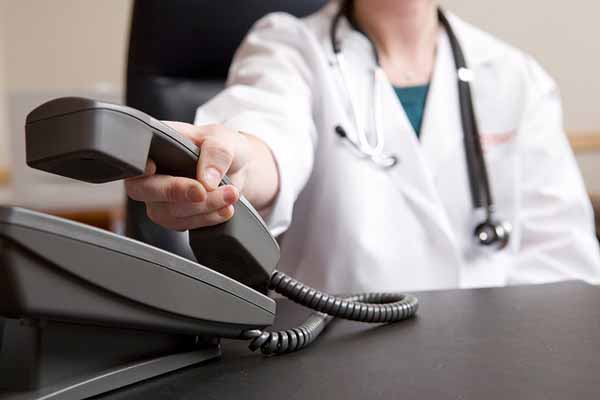
Physicians who see Medicare patients via audio-only telehealth visits will be paid the same rate as for similar in-person visits, the Centers for Medicare & Medicaid Service (CMS) said in announcing a sweeping series of changes Thursday.
The payment boost is retroactive to March 1, the agency said.
CMS also will cover behavioral health and patient education services as audio-only telephone visits.
The changes are in response to the rapid growth of telemedicine during the COVID-19 health emergency, driven by temporary changes to state and federal rules and regulations, including payments for certain types of visits.
For example, 74% of physicians who participated in the Texas Medical Association’s COVID-19 telephone town hall last month said they began using telemedicine for the first time only after March 1.
Medicine has pushed the federal government to increase payments for audio-only visits – among other requests – since the outbreak started. TMA signed onto a letter to key national lawmakers last month that called for “payment for virtual visits including phone calls, and other measures.”
On Wednesday, a bipartisan group of U.S. senators urged the CMS director and Health and Human Services secretary “to better support the provision of audio-only services for Medicare beneficiaries who may lack access to broadband or have limitations that prevent the use of audio-visual telehealth services during the COVID-19 outbreak.”
CMS’ new rules adopted Thursday also support and expand COVID-19 diagnostic testing, including paying for certain antibody, or serology, tests and processing for home tests that have been approved by the Food and Drug Administration. (For more on those tests, see TMA’s newly updated COVID-19 Testing FAQ.)
In addition, CMS will pay hospitals, physicians, and other practitioners to assess patients and collect laboratory samples for COVID-19 testing, “and make separate payment when that is the only service the patient receives.”
Other regulatory changes include:
- Adding new telehealth services on a sub-regulatory basis, considering requests by physicians now learning to use telehealth as broadly as possible;
- Paying for Medicare telehealth services provided by rural health clinics and federally qualified health clinics.
- Allowing teaching hospitals to create more temporary beds without being penalized for indirect medical education. In addition, CMS will not cut Medicare payments to teaching hospitals that reassign residents to other facilities, nor will it penalize the hospitals that bring in those residents; and
- Allowing long-term acute care facilities to accept acute care hospital patients and be paid at a higher Medicare rate, as required in the CARES Act.
To stay up to date on the clinical, practice management, and advocacy sides of the crisis, visit the TMA COVID-19 Resource Center regularly.